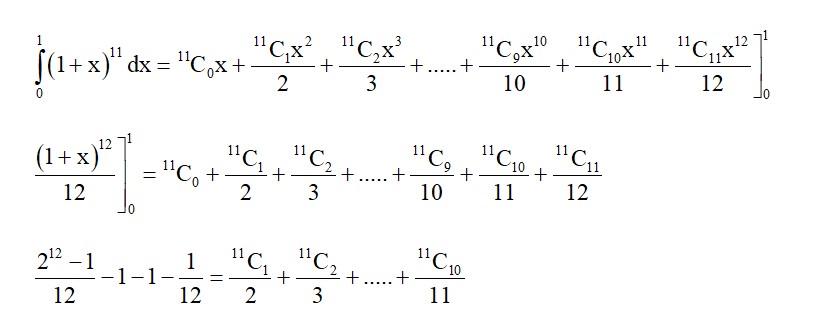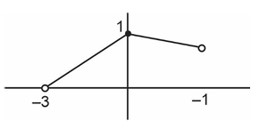Suppose that a function f: R → R satisfies f(x + y) = f(x)f(y) for all x, y ∈ R and f(1) = 3. If Σ???? f(i) = 363, then n is equal to
Suppose that a function f: R → R satisfies f(x + y) = f(x)f(y) for all x, y ∈ R and f(1) = 3. If Σ???? f(i) = 363, then n is equal to
Given f (1) = a = 3, and assuming the function form is f (x) = a?
So f (x) = 3?
∑? f (i) = 363
⇒ 3 + 3² + . + 3? = 363
This is a geometric progression. The sum is S? = a (r? -1)/ (r-1).
3 (3? -1)/ (3-1) = 363
3 (3? -1)/2 = 363
3? - 1 = 242
3? = 243
3? = 3? ⇒ n = 5
Similar Questions for you
...(1)
–2α + β = 0 …(2)
Solving (1) and (2)
a =
Variance =
α2 + β2 = 897.7 × 8
= 7181.6
Start with
(1)
(2)
(3) GTE : 4!, GTN: 4!, GTT : 4!
(4) GTWENTY = 1
⇒ 360 + 60 + 60 + 24 + 24 + 24 + 1 = 553

->g(x) = |x|, x Î (–3, 1)

Range of fog(x) is [0, 1]
Range of fog(x) is [0, 1]
Taking an Exam? Selecting a College?
Get authentic answers from experts, students and alumni that you won't find anywhere else.
On Shiksha, get access to
Learn more about...

Maths Relations and Functions 2025
View Exam DetailsMost viewed information
SummaryDidn't find the answer you were looking for?
Search from Shiksha's 1 lakh+ Topics
Ask Current Students, Alumni & our Experts
Have a question related to your career & education?
See what others like you are asking & answering

